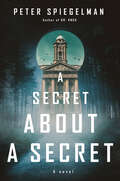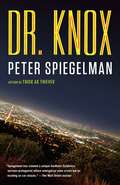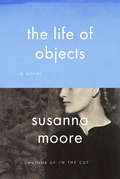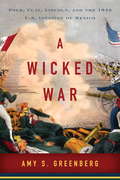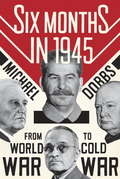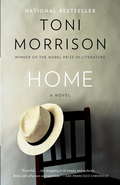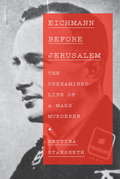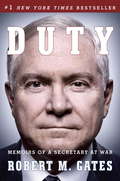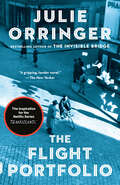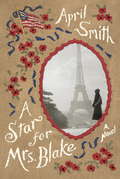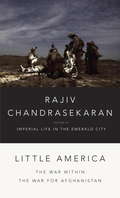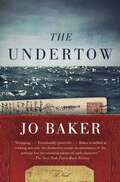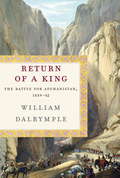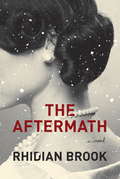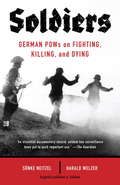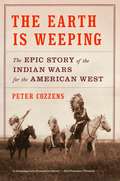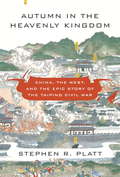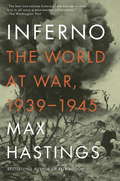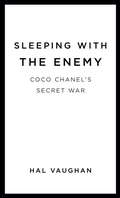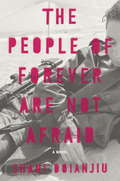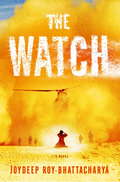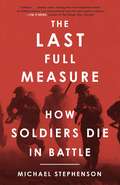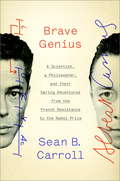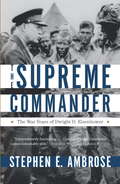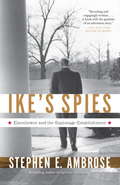- Table View
- List View
A Secret About a Secret: A novel
by Peter SpiegelmanA hypnotic literary mystery thriller about a murder at a secluded research facility and the secrets that it exposes. • "Cyber thievery, lust, corporate espionage, and a host of deleterious secrets comprise the chords of this sweeping, riveting symphony. A bold and original thriller by a masterful storyteller.&” —Elizabeth Brundage, author of The Vanishing PointLooming high above the cliffside along a remote coastline, Ondstrand House is the headquarters of the shadowy biotech firm Ondstrand Biologic. When the body of the organization&’s most gifted young scientist, Allegra Stans, is discovered in a walk-in refrigerator—her neck has been broken—Agent Myles is called in to investigate. Myles works for Standard Division, the most feared element of a vast state security apparatus, and he&’s been dispatched to the brooding manor, a massive stone campus that once housed a notorious boarding school, to do what Standard Division agents do best—complete the task at hand.As his investigation proceeds, Myles discovers that &“gifted scientist&” is only one thread in the complicated fabric of Allegra&’s life. There are darker strands as well—of ambition, manipulation, and bitter grievance—all woven into a pattern of secrets, each presenting a reasonable motive for murder. It appears everyone has something to hide, including Allegra&’s colleagues, lovers, and former lovers—even the very halls of Ondstrand House itself.Questions continue to pile up: What interest does Standard Division, an organization best known for intelligence gathering and clandestine international operations, have in this seemingly straightforward case? Could the killing have anything to do with the sprawling estate&’s sordid past? And what, exactly, is this research facility researching? Before long, another murder is discovered, and Myles finds himself an increasingly unwelcome presence in an ever more hostile landscape with few allies and fewer answers.
Dr. Knox: A novel
by Peter SpiegelmanFrom the author of Red Cat and Thick as Thieves: a gripping new thriller about a medical doctor with a powerful humanitarian impulse, an unhealthy appetite for risk, and a knack for finding himself between a rock and a hard place. Adam Knox comes from a long line of patrician Connecticut doctors--a line he broke to serve with an NGO in the war-torn Central African Republic. His attempt to protect his patients there from a brutal militia ended in disaster and disgrace, and now he runs a clinic near Los Angeles's Skid Row, making ends meet by making house calls--cash only, no questions asked--on those too famous or too criminal to seek other medical care. When a young boy is abandoned at his clinic, Knox is determined to find the boy's family and save him from the not-so-tender mercies of the child welfare bureaucracy. But Knox's search for the volatile woman who may or may not be the boy's mother leads him and his friend, a former Special Forces operator, into a labyrinth of human traffickers, Russian mobsters, and corporate security thugs; and squarely into the sights of a powerful, secretive, and utterly ruthless family that threatens to destroy Dr. Knox and everything--and everyone--he holds dear.From the Hardcover edition.
The Life of Objects
by Susanna MooreIn 1938, seventeen-year-old Beatrice, an Irish Protestant lace maker, finds herself at the center of a fairy tale when she is whisked away from her dreary life to join the Berlin household of Felix and Dorothea Metzenburg. Art collectors, and friends to the most fascinating men and women in Europe, the Metzenburgs introduce Beatrice to a world in which she finds more to desire than she ever imagined. But Germany has launched its campaign of aggression across Europe, and, before long, the conflict reaches the Metzenburgs' threshold. Retreating with Beatrice to their country estate, Felix and Dorothea do their best to preserve the traditions of the old world. But the realities of hunger and illness, as well as the even graver threats of Nazi terror, the deportation and murder of Jews, and the hordes of refugees fleeing the advancing Red Army begin to threaten their existence. When the Metzenburgs are forced to join a growing population of men and women in hiding, Beatrice, increasingly attached to the family and its unlikely wartime community, bears heartrending witness to the atrocities of the age and to the human capacity for strength in the face of irrevocable loss. In searing physical and emotional detail, The Life of Objects illuminates Beatrice's journey from childhood to womanhood, from naïveté to wisdom, as a continent collapses into darkness around her. It is Susanna Moore's most powerful and haunting novel yet.
A Wicked War: Polk, Clay, Lincoln, and the 1846 U.S. Invasion of Mexico
by Amy S. GreenbergOften forgotten and overlooked, the U.S.-Mexican War featured false starts, atrocities, and daring back-channel negotiations as it divided the nation, paved the way for the Civil War a generation later, and launched the career of Abraham Lincoln. Amy S. Greenberg's skilled storytelling and rigorous scholarship bring this American war for empire to life with memorable characters, plotlines, and legacies. When President James K. Polk compelled a divided Congress to support his war with Mexico, it was the first time that the young American nation would engage another republic in battle. Caught up in the conflict and the political furor surrounding it were Abraham Lincoln, then a new congressman; Polk, the dour president committed to territorial expansion at any cost; and Henry Clay, the aging statesman whose presidential hopes had been frustrated once again, but who still harbored influence and had one last great speech up his sleeve. Beyond these illustrious figures, A Wicked War follows several fascinating and long-neglected characters: Lincoln's archrival John Hardin, whose death opened the door to Lincoln's rise; Nicholas Trist, gentleman diplomat and secret negotiator, who broke with his president to negotiate a fair peace; and Polk's wife, Sarah, whose shrewd politicking was crucial in the Oval Office. This definitive history of the 1846 conflict paints an intimate portrait of the major players and their world. It is a story of Indian fights, Manifest Destiny, secret military maneuvers, gunshot wounds, and political spin. Along the way it captures a young Lincoln mismatching his clothes, the lasting influence of the Founding Fathers, the birth of the Daughters of the American Revolution, and America's first national antiwar movement. A key chapter in the creation of the United States, it is the story of a burgeoning nation and an unforgettable conflict that has shaped American history.
Six Months in 1945
by Michael DobbsFrom the author of the best-selling One Minute to Midnight, a riveting account of the pivotal six-month period spanning the end of World War II, the dawn of the nuclear age, and the beginning of the Cold War. When Roosevelt, Stalin, and Churchill met in Yalta in February 1945, Hitler's armies were on the run and victory was imminent. The Big Three wanted to draft a blueprint for a lasting peace--but instead set the stage for a forty-four-year division of Europe into Soviet and western spheres of influence. After fighting side by side for nearly four years, their political alliance was rapidly fracturing. By the time the leaders met again in Potsdam in July 1945, Russians and Americans were squabbling over the future of Germany and Churchill was warning about an "iron curtain" being drawn down over the Continent. These six months witnessed some of the most dramatic moments of the twentieth century: the cataclysmic battle for Berlin, the death of Franklin Roosevelt, the discovery of the Nazi concentration camps, Churchill's electoral defeat, and the dropping of atomic bombs on Japan. While their armies linked up in the heart of Europe, the political leaders maneuvered for leverage: Stalin using his nation's wartime sacrifices to claim spoils, Churchill doing his best to halt Britain's waning influence, FDR trying to charm Stalin, Truman determined to stand up to an increasingly assertive Soviet superpower. Six Months in 1945 brilliantly captures this momentous historical turning point, chronicling the geopolitical twists behind the descent of the iron curtain, while illuminating the aims and personalities of larger-than-life political giants. It is a vividly rendered story of individual and national interests in fierce competition at a seminal moment in history.
Home: A novel (Vintage International)
by Toni MorrisonThe latest novel from Nobel Prize winner Toni Morrison.An angry and self-loathing veteran of the Korean War, Frank Money finds himself back in racist America after enduring trauma on the front lines that left him with more than just physical scars. His home--and himself in it--may no longer be as he remembers it, but Frank is shocked out of his crippling apathy by the need to rescue his medically abused younger sister and take her back to the small Georgia town they come from, which he's hated all his life. As Frank revisits the memories from childhood and the war that leave him questioning his sense of self, he discovers a profound courage he thought he could never possess again. A deeply moving novel about an apparently defeated man finding his manhood--and his home.This eBook edition includes a Reading Group Guide.
Eichmann Before Jerusalem: The Unexamined Life of a Mass Murderer
by Ruth Martin Bettina StangnethA total and groundbreaking reassessment of the life of Adolf Eichmann—a superb work of scholarship that reveals his activities and notoriety among a global network of National Socialists following the collapse of the Third Reich and that permanently challenges Hannah Arendt’s notion of the “banality of evil.”<P> Smuggled out of Europe after the collapse of Germany, Eichmann managed to live a peaceful and active exile in Argentina for years before his capture by the Mossad. Though once widely known by nicknames such as “Manager of the Holocaust,” in 1961 he was able to portray himself, from the defendant’s box in Jerusalem, as an overworked bureaucrat following orders—no more, he said, than “just a small cog in Adolf Hitler’s extermination machine.” How was this carefully crafted obfuscation possible? How did a central architect of the Final Solution manage to disappear? And what had he done with his time while in hiding?<P> Bettina Stangneth, the first to comprehensively analyze more than 1,300 pages of Eichmann’s own recently discovered written notes— as well as seventy-three extensive audio reel recordings of a crowded Nazi salon held weekly during the 1950s in a popular district of Buenos Aires—draws a chilling portrait, not of a reclusive, taciturn war criminal on the run, but of a highly skilled social manipulator with an inexhaustible ability to reinvent himself, an unrepentant murderer eager for acolytes with whom to discuss past glories while vigorously planning future goals with other like-minded fugitives. <P> A work that continues to garner immense international attention and acclaim, Eichmann Before Jerusalem maps out the astonishing links between innumerable past Nazis—from ace Luftwaffe pilots to SS henchmen—both in exile and in Germany, and reconstructs in detail the postwar life of one of the Holocaust’s principal organizers as no other book has done.
Duty: Memoirs of a Secretary at War
by Robert M GatesFrom the former secretary of defense, a strikingly candid, vivid account of serving Presidents George W. Bush and Barack Obama during the wars in Iraq and Afghanistan. When Robert M. Gates received a call from the White House, he thought he'd long left Washington politics behind: After working for six presidents in both the CIA and the National Security Council, he was happily serving as president of Texas A&M University. But when he was asked to help a nation mired in two wars and to aid the troops doing the fighting, he answered what he felt was the call of duty.
The Flight Portfolio: A novel (Vintage Contemporaries Ser.)
by Julie OrringerFrom the bestselling, award-winning author of The Invisible Bridge comes a gripping tale of forbidden love, high-stakes adventure, and unimaginable courage filled with "suspense and tragedy, unexpected twists and deliverance&” (The Seattle Times). • THE INSPIRATION FOR THE NETFLIX SERIES TRANSATLANTIC MARSEILLE, 1940. Varian Fry, a Harvard-educated journalist and editor, arrives in France. Recognizing the darkness descending over Europe, he and a group of like-minded New Yorkers formed the Emergency Rescue Committee, helping artists and writers escape from the Nazis and immigrate to the United States. Amid the chaos of World War II, and in defiance of restrictive U.S. immigration policies, Fry must procure false passports, secure visas, seek out escape routes through the Pyrenees and by sea, and make impossible decisions about who should be saved, all while under profound pressure—and in a state of irrevocable personal change. In this dazzling work of historical fiction—one that illuminates previously unexplored elements of Fry&’s story, and has, since its publication, brought us new insight into his life.
A Star for Mrs. Blake
by April SmithThe United States Congress in 1929 passed legislation to fund travel for mothers of the fallen soldiers of World War I to visit their sons' graves in France. Over the next three years, 6,693 Gold Star Mothers made the trip. In this emotionally charged, brilliantly realized novel, April Smith breathes life into a unique moment in American history, imagining the experience of five of these women.They are strangers at the start, but their lives will become inextricably intertwined, altered in indelible ways. These very different Gold Star Mothers travel to the Meuse-Argonne American Cemetery to say final good-byes to their sons and come together along the way to face the unexpected: a death, a scandal, and a secret revealed. None of these pilgrims will be as affected as Cora Blake, who has lived almost her entire life in a small fishing village off the coast of Maine, caring for her late sister's three daughters, hoping to fill the void left by the death of her son, Sammy, who was killed on a scouting mission during the final days of the war. Cora believes she is managing as well as can be expected in the midst of the Depression, but nothing has prepared her for what lies ahead on this unpredictable journey, including an extraordinary encounter with an expatriate American journalist, Griffin Reed, who was wounded in the trenches and hides behind a metal mask, one of hundreds of "tin noses" who became symbols of the war. With expert storytelling, memorable characters, and beautiful prose, April Smith gives us a timeless story, by turns heartwarming and heartbreaking, set against a footnote of history--little known, yet unforgettable. From the Hardcover edition.
Little America: The War Within the War for Afghanistan
by Rajiv ChandrasekaranFrom the award-winning author of Imperial Life in the Emerald City, a riveting, intimate account of America's troubled war in Afghanistan. When President Barack Obama ordered the surge of troops and aid to Afghanistan, Washington Post correspondent Rajiv Chandrasekaran followed. He found the effort sabotaged not only by Afghan and Pakistani malfeasance but by infighting and incompetence within the American government: a war cabinet arrested by vicious bickering among top national security aides; diplomats and aid workers who failed to deliver on their grand promises; generals who dispatched troops to the wrong places; and headstrong military leaders who sought a far more expansive campaign than the White House wanted. Through their bungling and quarreling, they wound up squandering the first year of the surge. Chandrasekaran explains how the United States has never understood Afghanistan--and probably never will. During the Cold War, American engineers undertook a massive development project across southern Afghanistan in an attempt to woo the country from Soviet influence. They built dams and irrigation canals, and they established a comfortable residential community known as Little America, with a Western-style school, a coed community pool, and a plush clubhouse--all of which embodied American and Afghan hopes for a bright future and a close relationship. But in the late 1970s--after growing Afghan resistance and a Communist coup--the Americans abandoned the region to warlords and poppy farmers. In one revelatory scene after another, Chandrasekaran follows American efforts to reclaim the very same territory from the Taliban. Along the way, we meet an Army general whose experience as the top military officer in charge of Iraq's Green Zone couldn't prepare him for the bureaucratic knots of Afghanistan, a Marine commander whose desire to charge into remote hamlets conflicted with civilian priorities, and a war-seasoned diplomat frustrated in his push for a scaled-down but long-term American commitment. Their struggles show how Obama's hope of a good war, and the Pentagon's desire for a resounding victory, shriveled on the arid plains of southern Afghanistan. Meticulously reported, hugely revealing, Little America is an unprecedented examination of a failing war--and an eye-opening look at the complex relationship between America and Afghanistan.From the Hardcover edition.
The Undertow: A novel
by Jo BakerThe American debut of an enthralling new voice: a vivid, indelibly told work of fiction that follows four generations of a family against the backdrop of a tumultuous century--a novel about inheritance, about fate and passion, and about what it means to truly break free of the past.This is the story of the Hastings family--their secrets, their loves and losses, dreams and heartbreaks--captured in a seamless series of individual moments that span the years between the First World War and the present. The novel opens in 1914 as William, a young factory worker, spends one last evening at home before his departure for the navy . . . His son, Billy, grows into a champion cyclist and will ride into the D-Day landings on a military bicycle . . . His son in turn, Will, struggles with a debilitating handicap to become an Oxford professor in the 1960s . . . And finally, young Billie Hastings makes a life for herself as an artist in contemporary London. Just as the names echo down through the family, so too does the legacy of choices made, chances lost, and truths long buried.From the Hardcover edition.
Return of a King: The Battle for Afghanistan, 1839-42
by William DalrympleFrom William Dalrymple--award-winning historian, journalist and travel writer--a masterly retelling of what was perhaps the West's greatest imperial disaster in the East, and an important parable of neocolonial ambition, folly and hubris that has striking relevance to our own time. With access to newly discovered primary sources from archives in Afghanistan, Pakistan, Russia and India--including a series of previously untranslated Afghan epic poems and biographies--the author gives us the most immediate and comprehensive account yet of the spectacular first battle for Afghanistan: the British invasion of the remote kingdom in 1839. Led by lancers in scarlet cloaks and plumed helmets, and facing little resistance, nearly 20,000 British and East India Company troops poured through the mountain passes from India into Afghanistan in order to reestablish Shah Shuja ul-Mulk on the throne, and as their puppet. But after little more than two years, the Afghans rose in answer to the call for jihad and the country exploded into rebellion. This First Anglo-Afghan War ended with an entire army of what was then the most powerful military nation in the world ambushed and destroyed in snowbound mountain passes by simply equipped Afghan tribesmen. Only one British man made it through. But Dalrymple takes us beyond the bare outline of this infamous battle, and with penetrating, balanced insight illuminates the uncanny similarities between the West's first disastrous entanglement with Afghanistan and the situation today. He delineates the straightforward facts: Shah Shuja and President Hamid Karzai share the same tribal heritage; the Shah's principal opponents were the Ghilzai tribe, who today make up the bulk of the Taliban's foot soldiers; the same cities garrisoned by the British are today garrisoned by foreign troops, attacked from the same rings of hills and high passes from which the British faced attack. Dalryrmple also makes clear the byzantine complexity of Afghanistan's age-old tribal rivalries, the stranglehold they have on the politics of the nation and the ways in which they ensnared both the British in the nineteenth century and NATO forces in the twenty-first. Informed by the author's decades-long firsthand knowledge of Afghanistan, and superbly shaped by his hallmark gifts as a narrative historian and his singular eye for the evocation of place and culture, The Return of a King is both the definitive analysis of the First Anglo-Afghan War and a work of stunning topicality.From the Hardcover edition.
The Aftermath
by Rhidian BrookHamburg, 1946. Thousands remain displaced in what is now the British Occupied Zone. Charged with overseeing the rebuilding of this devastated city and the de-Nazification of its defeated people, Colonel Lewis Morgan is requisitioned a fine house on the banks of the Elbe, where he will be joined by his grieving wife, Rachael, and only remaining son, Edmund. But rather than force its owners, a German widower and his traumatized daughter, to leave their home, Lewis insists that the two families live together. In this charged and claustrophobic atmosphere all must confront their true selves as enmity and grief give way to passion and betrayal. The Aftermath is a stunning novel about our fiercest loyalties, our deepest desires and the transformative power of forgiveness.
Soldaten
by Jefferson Chase Harald Welzer Sonke NeitzelIn 2001, spurred by a nagging curiosity over a transcript of a secretly recorded conversation he had come across in his research on the German U-boat wars, historian Sönke Neitzel paid a visit to the British national archives. He had heard of the existence of recorded interrogations of German POWs, but never about covert recordings taken within the confines of the holding cells, bedrooms, and camps that housed the prisoners. What Neitzel discovered, to his amazement, were reams of untouched, recently declassified transcripts totaling nearly eight hundred pages. Later, Neitzel would find another trove of protocols twice as extensive at the National Archives in Washington, D.C. Though initially recorded by British intelligence with the intention of gaining information that might be useful for the Allied war effort, the matters discussed in these conversations ultimately proved to be limited in that regard. But for Neitzel and his collaborator, renowned social psychologist Harald Welzer, they would supply a unique and profoundly important window into the mentality of the soldiers in the Wehrmacht, the Luftwaffe, the German navy, and the military in general, almost all of whom had insisted on their own honorable behavior during the war. It is a myth these transcripts unequivocally debunk. Soldaten closely examines these conversations, and the casual, pitiless brutality omnipresent in them, from a historical and psychological perspective. What factors led to the degradation of the soldiers' sense of awareness and morality? How much did their social environments affect their interpretation of the war and their actions during combat? By reconstructing the frameworks and situations behind these conversations, and the context in which they were spoken, a powerful, unflinching narrative of wartime experience emerges. The details of what these soldiers did, after all, are not filtered the way they might be in letters to family, or girlfriends and wives, or during interrogations by the enemy. In Soldaten, Sönke Neitzel and Harald Welzer offer an unmitigated window into the mind-set of the German fighting man, potentially changing our view of World War II.
The Earth Is Weeping: The Epic Story of the Indian Wars for the American West
by Peter CozzensBringing together a pageant of fascinating characters including Custer, Sherman, Grant, and a host of other military and political figures, as well as great native leaders such as Crazy Horse, Sitting Bull, Geronimo, and Red Cloud, The Earth is Weeping—lauded by Booklist as “a beautifully written work of understanding and compassion”—is the fullest account to date of how the West was won…and lost."[S]ets a new standard for Western Indian Wars history..." —Stuart Rosebrook, True West MagazineWith the end of the Civil War, the nation recommenced its expansion onto traditional Indian tribal lands, setting off a wide-ranging conflict that would last more than three decades. In an exploration of the wars and negotiations that destroyed tribal ways of life even as they made possible the emergence of the modern United States, Peter Cozzens gives us both sides in comprehensive and singularly intimate detail. He illuminates the encroachment experienced by the tribes and the tribal conflicts over whether to fight or make peace, and explores the squalid lives of soldiers posted to the frontier and the ethical quandaries faced by generals who often sympathized with their native enemies.
Autumn in the Heavenly Kingdom: China, the West, and the Epic Story of the Taiping Civil War
by Stephen R. PlattA gripping account of China's nineteenth-century Taiping Rebellion, one of the largest civil wars in history. Autumn in the Heavenly Kingdom brims with unforgettable characters and vivid re-creations of massive and often gruesome battles--a sweeping yet intimate portrait of the conflict that shaped the fate of modern China. The story begins in the early 1850s, the waning years of the Qing dynasty, when word spread of a major revolution brewing in the provinces, led by a failed civil servant who claimed to be the son of God and brother of Jesus. The Taiping rebels drew their power from the poor and the disenfranchised, unleashing the ethnic rage of millions of Chinese against their Manchu rulers. This homegrown movement seemed all but unstoppable until Britain and the United States stepped in and threw their support behind the Manchus: after years of massive carnage, all opposition to Qing rule was effectively snuffed out for generations. Stephen R. Platt recounts these events in spellbinding detail, building his story on two fascinating characters with opposing visions for China's future: the conservative Confucian scholar Zeng Guofan, an accidental general who emerged as the most influential military strategist in China's modern history; and Hong Rengan, a brilliant Taiping leader whose grand vision of building a modern, industrial, and pro-Western Chinese state ended in tragic failure. This is an essential and enthralling history of the rise and fall of the movement that, a century and a half ago, might have launched China on an entirely different path into the modern world.
All Hell Let Loose: The World at War, 1939-1945
by Max HastingsFrom one of our finest military historians, a monumental work that shows us at once the truly global reach of World War II and its deeply personal consequences. World War II involved tens of millions of soldiers and cost sixty million lives--an average of twenty-seven thousand a day. For thirty-five years, Max Hastings has researched and written about different aspects of the war. Now, for the first time, he gives us a magnificent, single-volume history of the entire war. Through his strikingly detailed stories of everyday people--of soldiers, sailors and airmen; British housewives and Indian peasants; SS killers and the citizens of Leningrad, some of whom resorted to cannibalism during the two-year siege; Japanese suicide pilots and American carrier crews--Hastings provides a singularly intimate portrait of the world at war. He simultaneously traces the major developments--Hitler's refusal to retreat from the Soviet Union until it was too late; Stalin's ruthlessness in using his greater population to wear down the German army; Churchill's leadership in the dark days of 1940 and 1941; Roosevelt's steady hand before and after the United States entered the war--and puts them in real human context.Hastings also illuminates some of the darker and less explored regions under the war's penumbra, including the conflict between the Soviet Union and Finland, during which the Finns fiercely and surprisingly resisted Stalin's invading Red Army; and the Bengal famine in 1943 and 1944, when at least one million people died in what turned out to be, in Nehru's words, "the final epitaph of British rule" in India. Remarkably informed and wide-ranging, Inferno is both elegantly written and cogently argued. Above all, it is a new and essential understanding of one of the greatest and bloodiest events of the twentieth century.From the Hardcover edition.
Sleeping with the Enemy: Coco Chanel's Secret War
by Hal Vaughan"From this century, in France, three names will remain: de Gaulle, Picasso, and Chanel." -André MalrauxCoco Chanel created the look of the modern woman and was the high priestess of couture.She believed in simplicity, and elegance, and freed women from the tyranny of fashion. She inspired women to take off their bone corsets and cut their hair. She used ordinary jersey as couture fabric, elevated the waistline, and created bell-bottom trousers, trench coats, and turtleneck sweaters. In the 1920s, when Chanel employed more than two thousand people in her workrooms, she had amassed a personal fortune of $15 million and went on to create an empire.Jean Cocteau once said of Chanel that she had the head of "a little black swan." And, added Colette, "the heart of a little black bull." At the start of World War II, Chanel closed down her couture house and went across the street to live at the Hôtel Ritz. Picasso, her friend, called her "one of the most sensible women in Europe." She remained at the Ritz for the duration of the war, and after, went on to Switzerland. For more than half a century, Chanel's life from 1941 to 1954 has been shrouded in vagueness and rumor, mystery and myth. Neither Chanel nor her many biographers have ever told the full story of these years. Now Hal Vaughan, in this explosive narrative--part suspense thriller, part wartime portrait--fully pieces together the hidden years of Gabrielle "Coco" Chanel's life, from the Nazi occupation of Paris to the aftermath of World War II. Vaughan reveals the truth of Chanel's long-whispered collaboration with Hitler's high-ranking officials in occupied Paris from 1940 to 1944. He writes in detail of her decades-long affair with Baron Hans Günther von Dincklage, "Spatz" ("sparrow" in English), described in most Chanel biographies as being an innocuous, English-speaking tennis player, playboy, and harmless dupe--a loyal German soldier and diplomat serving his mother country and not a member of the Nazi party. In Vaughan's absorbing, meticulously researched book, Dincklage is revealed to have been a Nazi master spy and German military intelligence agent who ran a spy ring in the Mediterranean and in Paris and reported directly to Nazi propaganda minister Joseph Goebbels, right hand to Hitler.The book pieces together how Coco Chanel became a German intelligence operative; how and why she was enlisted in a number of spy missions; how she escaped arrest in France after the war, despite her activities being known to the Gaullist intelligence network; how she fled to Switzerland for a nine-year exile with her lover Dincklage. And how, despite the French court's opening a case concerning Chanel's espionage activities during the war, she was able to return to Paris at age seventy and triumphantly resurrect and reinvent herself--and rebuild what has become the iconic House of Chanel.From the Hardcover edition.
The People of Forever Are Not Afraid
by Shani BoianjiuShani Boianjiu's stunning debut gives us a world where girls in the Israeli Defense Forces wait, endlessly--for womanhood, orders, war, peace. Yael trains marksmen and flirts with boys. Avishag stands guard, watching refugees throw themselves at barbed-wire fences. Lea, posted at a checkpoint, imagines stories behind the familiar faces that pass by her day after day. They gossip about boys and whisper of an ever more violent world just beyond view. They drill, constantly, for a moment that may never come. They live inside that single, intense second just before danger erupts. And they find that their dreams have stranger repercussions than they have been trained to imagine.
The Watch
by Joydeep Roy-BhattacharyaFollowing a desperate night-long battle, a group of beleaguered soldiers in an isolated base in Kandahar are faced with a lone woman demanding the return of her brother's body. Is she a spy, a black widow, a lunatic, or is she what she claims to be: a grieving young sister intent on burying her brother according to local rites? Single-minded in her mission, she refuses to move from her spot on the field in full view of every soldier in the stark outpost. Her presence quickly proves dangerous as the camp's tense, claustrophobic atmosphere comes to a boil when the men begin arguing about what to do next. Joydeep Roy-Bhattacharya's heartbreaking and haunting novel, The Watch, takes a timeless tragedy and hurls it into present-day Afghanistan. Taking its cues from the Antigone myth, Roy-Bhattacharya brilliantly recreates the chaos, intensity, and immediacy of battle, and conveys the inevitable repercussions felt by the soldiers, their families, and by one sister. The result is a gripping tour through the reality of this very contemporary conflict, and our most powerful expression to date of the nature and futility of war.
The Last Full Measure: How Soldiers Die in Battle
by Michael StephensonIn this brilliantly researched, deeply humane work of history, Michael Stephenson traces the paths that have led soldiers to their graves over the centuries, revealing a wealth of insight about the nature of combat, the differences among cultures, and the unchanging qualities of humanity itself. Behind every soldier's death lies a story, a tale not just of the cold mathematics of the battlefield but of an individual human being who gave his life. What psychological and cultural pressures brought him to his fate? What lies--and truths--convinced him to march toward his death? Covering warfare from prehistory through the present day, The Last Full Measure tells these soldiers' stories, ultimately capturing the experience of war as few books ever have. In these pages, we march into battle alongside the Greek phalanx and the medieval foot soldier. We hear gunpowder's thunder in the slaughters of the Napoleonic era and the industrialized killing of the Civil War, and recoil at the modern, automated horrors of both World Wars. Finally, we witness the death of one tradition of "heroic" combat and the construction of another in the wars of the modern era, ranging from Vietnam to America's latest involvements in Iraq and Afghanistan. In exploring these conflicts and others, Stephenson draws on numerous sources to delve deep into fascinating, period-specific detail--tracing, for instance, the true combat effectiveness of the musket, the utility of the cavalry charge, or the vulnerabilities of the World War II battle tank. Simultaneously, he examines larger themes and reveals surprising connections across both time and culture. What does the medieval knight have in common with the modern paratrooper? What did heroism and bravery mean to the Roman legionary, or to the World War I infantryman--and what is the true motivating power of such ideals? How do men use religion, friendship, or even nihilism to armor themselves against impending doom--and what do we as human beings make of the undeniable joy some among us take in the carnage? Combining commanding prose, impeccable research, and a true sensitivity to the combatant's plight, The Last Full Measure is both a remarkably fresh journey through the annals of war and a powerful tribute to the proverbial unknown soldier.
Brave Genius
by Sean B. CarrollThe never-before-told account of the intersection of some of the most insightful minds of the 20th century, and a fascinating look at how war, resistance, and friendship can catalyze genius. In the spring of 1940, the aspiring but unknown writer Albert Camus and budding scientist Jacques Monod were quietly pursuing ordinary, separate lives in Paris. After the German invasion and occupation of France, each joined the Resistance to help liberate the country from the Nazis, ascended to prominent, dangerous roles, and were very lucky to survive. After the war and through twists of circumstance, they became friends, and through their passionate determination and rare talent they emerged as leading voices of modern literature and biology, each receiving the Nobel Prize in their respective fields. Drawing upon a wealth of previously unpublished and unknown material gathered over several years of research, Brave Genius tells the story of how each man endured the most terrible episode of the twentieth century and then blossomed into extraordinarily creative and engaged individuals. It is a story of the transformation of ordinary lives into exceptional lives by extraordinary events--of courage in the face of overwhelming adversity, the flowering of creative genius, deep friendship, and of profound concern for and insight into the human condition.
The Supreme Commander: The War Years of Dwight D. Eisenhower
by Stephen E. AmbroseIn this classic portrait of Dwight D. Eisenhower the soldier, bestselling historian Stephen E. Ambrose examines the Allied commander's leadership during World War II. Ambrose brings Eisenhower's experience of the Second World War to life, showing in vivid detail how the general's skill as a diplomat and a military strategist contributed to Allied successes in North Africa and in Europe, and established him as one of the greatest military leaders in the world. Ambrose, then the Associate Editor of the General's official papers, analyzes Eisenhower's difficult military decisions and his often complicated relationships with powerful personalities like Churchill, de Gaulle, Roosevelt, and Patton. This is the definitive account of Eisenhower's evolution as a military leader--from its dramatic beginnings through his time at the top post of Allied command.
Ike's Spies: Eisenhower and the Espionage Establishment
by Stephen E. AmbroseBased on privileged access to the president and his private papers, this classic Cold War-era history by bestselling historian Stephen E. Ambrose gives an inside look at the way President Dwight Eisenhower managed America's secret operations as general and as commander in chief. During his time in office, Eisenhower projected the image of a genial bureaucrat, but behind that public face, he ran the most efficient espionage establishment in the world, overseeing assassination plots, the growth of the CIA, and the overthrow of governments. This book gives a behind-the-scenes look at some of the most ambitious secret operations in American history, including the 1954 overthrow of Jacobo Arbenz Guzmán's government of Guatemala; Operation AJAX, which toppled Iran's Mossadegh; and the U-2 flights over Russia. Some of Ike's most conspicuous intelligence missteps are also discussed, including the failure to predict the German attack during the Battle of the Bulge and the tragic encouragement of freedom fighters in Hungary, Indonesia, and Cuba. Ike's Spies is indispensable to anyone interested in the development of America's Cold War spy operations.
